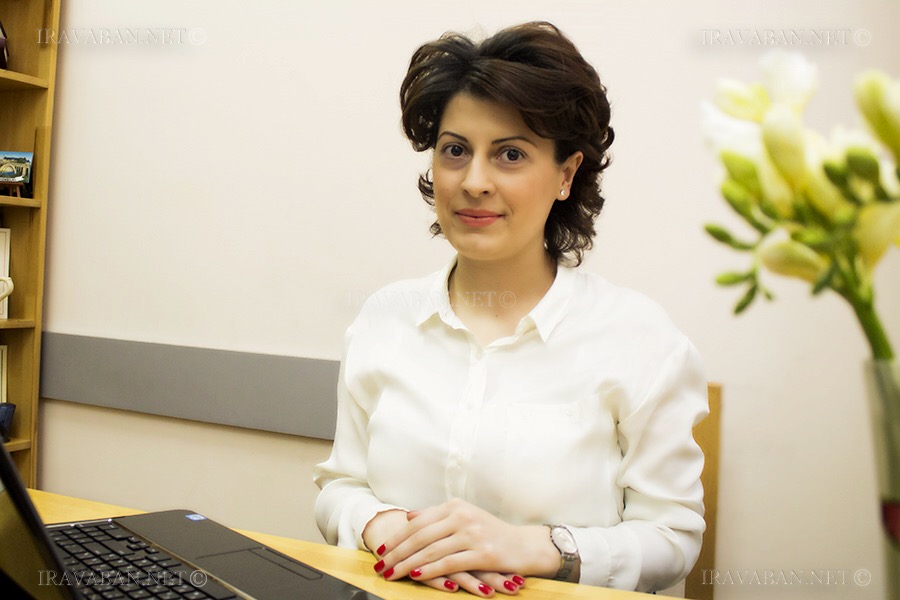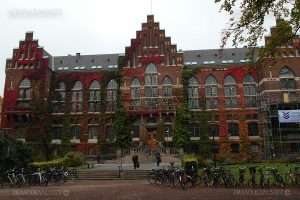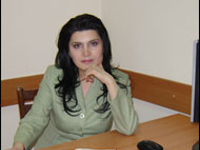It is not a secret that in Armenia the women’s rights are protected not only by domestic legislative bills but also by international statutes.
From the point of view of women’s right protection and elimination of discrimination international statutes we can separate the following:
1. The UN Convention on the Elimination of All Forms of Discrimination against Women was ratified on 13.10.1993. (Accepted in New York on 18 December 1979).
2. The Optional Protocol to the Convention on the Elimination of All Forms of Discrimination against Women was ratified on 23.05.2006 (accepted in New York on 6 October 1996).
3. The UN Convention on the Political Rights of Women was ratified was ratified on 24.10.2007(signed in New York on 31 March 1953).
4. The Protocol to Prevent, Suppress and Punish Trafficking in Persons, Especially Women and Children, supplementing the United Nations Convention against Transnational Organized Crime was ratified on 25.03.2003 (signed in Palermo on 12 December 2000).
5. The UN “International Covenant on Civil and Political Rights” was ratified on 01.04.1991 (accepted in New York on 16.12.1996).
6. The Council of Europe “Convention for the Protection of Human Rights and Fundamental Freedoms” was ratified on 25.01.2001 (accepted in Rome on 04.11.1950).
It is also notable that in 2010-2011, the Commission on the Status of Women (SCW), which is one of the main bodies of the UN: the Economic and Social Council, was presided by Armenia.
In 2000 the Council on Women’s Affairs by the Prime Minister was to enhance the women’s status in the social, political and economic spheres, as well as at all the levels of public and national governance, also to provide for equal rights and equal opportunities for men and women. The Council accepted the gender policy concept paper by the #5 protocol decision of the RA Government Session of 11 February 2010.
The gender concept paper tends to create equal conditions, overcome all types of discrimination on the basis of gender, create equal opportunities and equal accessibility to economic resources for women and men in the spheres of labor market and employment, forming a democratic political culture and supportable gender dialogue in the society in all spheres of life by implementation of gender criteria.
Table 1 shows the statues of employment that existed in 2009-2010
Table 1. Employees according to the status of employment, 2009-2010.
| Total | Gender distribution | |||||||
| 2009 | 2010 | 2009 | 2010 | |||||
| Female | Male | Female | Male | Female | Male | Female | Male | |
| Employee | 52.7 | 60.4 | 50.3 | 62.3 | 43.1 | 56.9 | 40.4 | 59.6 |
| Employer | 0.1 | 0.9 | 0.1 | 0.8 | 7.9 | 92.1 | 11.7 | 88.3 |
| Self Emplo | 22.4 | 22.7 | 27.5 | 27.4 | 41.2 | 58.8 | 45.6 | 54.4 |
| Other | 24.8 | 11.0 | 22.1 | 9.5 | 66.2 | 33.8 | 66.3 | 33.7 |
So let us observe the level of women’s participation in implementation of justice and human rights sphers:
According to Article 117 Part 3 of the RA Judicial Code adopted on 21.02.2007:” Gender balance shall be taken into consideration while compiling the list. If the number of judges of either gender is less than 25 percents of the total number of judges, then at least five places shall be guaranteed in the list to the candidates of that gender.
In 2009 and 2010, 46 of 216 judges and in 2011, 48 of 220 judges of the RA courts were women. According to the average calculation of the 2012 data 47 of 215 judges were women. As of 27 November 2013, 45 of 213 judges are women, 14 of them work in the regional courts of general jurisdiction.
According to Article 29, Part 3 of the “RA Law on Advocacy” adopted on 14.12.2004, the discrimination of any kind against applicants requested for obtaining a license to practice the profession of advocate, on the basis of national origin, nationality, race, sex, language, religion, political or other opinions, social origin, property or any other status is prohibited.
As of 2 March 2014, 1510 advocates are members of the Chamber of Advocates of the RA. 41,6 % of them are women.
What changes have been made to ensure participation of women in politics?
According to the Article 108, Part 2 of the RA Electoral Code adopted on 26.05.2011, Each political party or alliance of political parties shall have the right to nominate only one electoral list of candidates. A political party included in an alliance of political parties shall have no right to nominate a separate electoral list on its own behalf. The number of persons of each sex shall not exceed 80% of any integer group of five candidates starting from the second number of the electoral list (2-6, 2-11, 2-16, and so on up to the end of the list) of a political party or alliance of political parties and of each party included in an alliance for the National Assembly election under the proportional electoral system. At least 25 candidates shall be included in the electoral list of a political party or alliance of political parties for the proportional-system election of the National Assembly. The number of candidates included in the electoral list of a political party may not exceed thrice the number defined by this Code for the number of mandates of the National Assembly deputies under the proportional electoral system. Persons that are not members of a political party may also be included in the electoral list of such party.
Article 155, Part 2 of the same statute provides that the number of persons of each sex shall not exceed 80% of any integer group of five candidates starting from the second number of the electoral list (2-6, 2-11, 2-16, and so on up to the end of the list) of a political party or alliance of political parties and of each party included in an alliance. Persons that are not members of the party may also be included in the party’s electoral list.
Article 100, Part 2 of the RA Electoral Code, which was adopted on 05.02.1999, and annuled on 26.01.2011, also provided:
“Each party has the right to nominate only one list of candidates for deputies. The party within a party alliance has no right to nominate a separate candidates’ list on its own behalf. Women shall make at least five per cent of the candidates in the electoral lists presented by a party for the elections to the National Assembly by proportional system. Non-partisan representatives can also be included in the electoral lists presented by a party, by proportional system”
Notably, despite the fact, the RA Electoral Code of was annulled, yet it contained legal norms that correspond to the international standards. Nevertheless legal regulations provide by Article 100 part 2 of the legal act was an exception from the point of view of gender equality. It was not appropriate to the assumed international responsibilities.
1. The UN Convention on the Elimination of All Forms of Discrimination against Women, Article 4, Part 1.
2. International Covenant on Civil and Political Rights, Article 3.
3. Convention on the Political Rights of Women, Article 3.
4. European Convention for the Protection of Human Rights and Fundamental Freedoms article 14, 12nd protocol of convention article 12.
So if we take a look at the history of the National Assembly convocations, we will get the following picture. 14 of 131 delegates of the National Assembly’s 5th Convocation are women. In the 4th Convocation the number of female delegates reached 10, in the 3rd 2nd and 1 Convocations there were 6, 4 and 11 female delegates respectively.
Cases of domestic violence and violence against women:
The Republic of Armenia Joint periodic report referring the implementation of the UN Convention on the Elimination of All Forms of Discrimination against Women provides information about the implementation of the conventional provisions . The report also adverts the references of the UN Committee on the Elimination of All Forms of Discrimination against Women, about the Republic of Armenia. The references were adopted by the document # CEDAW/C/ARM/CO/4/Rev.1 of the Committee, on 2 February 2009.
According to the report 1322 cases of violations towards women were recorded in 2009. 235 of which were domestic. Within the same period, 135 cases of violations against the juvenile were recorded, 3 of which were domestic violence cases.
1526 cases of violations against women were recorded in 2010. 367 of which were domestic. Within the same period, 185 cases of violations towards the juvenile were recorded, 9 of them were cases of domestic violence.
1738 cases of violations against women were recorded in 2011. 560 of which were domestic. Within the same period, 168 cases of violations towards the juvenile were recorded, 14 of them were cases of domestic violence.
2026 cases of violations against women were recorded in 2012. 625 of which were domestic. Within the same period 190 cases of violations towards the juvenile were recorded, 13 of them were cases of domestic violence.
1449 cases of violations against women were recorded during the 9 months of 2013. 432 of which were domestic. Within the same period 199 cases of violations towards the juvenile were recorded, 13 of them were cases of domestic violence.
In this regard in the initiative of NGOs and with participation of the RA Ministry of Labor and Social Affairs, the Draft Law of the RA on “Domestic Violence” was elaborated and submitted to the consideration of the RA Government. But the Government rejected it, explaining that legal and judicial reforms were in process in the Republic. Then it instructed the RA Ministry of Justice and the RA Ministry of Labor and Social Affairs to ensure the incorporation of active mechanisms on the response and prevention of the domestic violence in the framework of the reforms.
In 2010-2014 number of divorces made in civil status authorities based on the application of women is the following:
1) 906 applications from 3148 recorded divorces in 2010,
2) 1011 applications from 3322 recorded divorces in 2011,
3) 995 applications from 3383 recorded divorces in 2012,
4) 997 applications from 3907 recorded divorces in 2013.
5) 630 applications from 2565 recorded divorces were recorded as of 1 June 2014 (08.08.2014)
Links of the articles are mentioned below:
[1] https://treaties.un.org/Pages/Treaties.aspx?id=4&subid=A&lang=en
[2] Amendment to article 8 of the International Convention on the Elimination of All Forms of Racial Discrimination. New York, 15 January 1992
[3] Decision of RA National Assembly to ratify the Optional Protocol to the Convention on the Elimination of All Forms of Discrimination against Women, accepted on 23.05.2006. Optional Protocol to the Convention on the Elimination of All Forms of Discrimination against Women adopted in New York, 6 October 1999.
[4] Decision of RA National Assembly to join the Convention on the Political Rights of Women, accepted on 24.10.2007. Convention on the political rights of women, signed in New York, 31 March 1953.
[5] Decision of RA National Assembly to ratify UN Convention Protocol to Prevent, Suppress and Punish Trafficking in Persons, Especially Women and Children, supplementing the United Nations Convention against Transnational Organized Crime, adopted on 25.03.2003. UN Convention Protocol to Prevent, Suppress and Punish Trafficking in Persons, Especially Women and Children, supplementing the United Nations Convention against Transnational Organized Crime, signed in Palermo, 12 December 2000.
[6] Decision of RA Supreme Council to join the International Covenant on Civil and Political Rights and adjacent optional protocols adopted on 01.04.1991. International Covenant on Civil and Political Rights adopted in New York, 16.12.1966
[7]https://coe.am/index.php?cat_id=37&out_lang=eng,
[8] See 5th and 6th periodical report on implementation of the UN Elimination of All Forms of Discrimination against Women by the Republic of Armenia.
[9] 5th and 6th periodical report on implementation of UN Elimination of All Forms of Discrimination against Women by the Republic of Armenia, p.p. 94-95, source: Complete Research of Domestic Household Living Standards, National Statistical Service of the Republic of Armenia.
[10] Judicial Code of the Republic of Armenia, adopted on 21.02.2007
[11] Law of RA on the Profession of Advocate, adopted on 14.12.2004
[12] Electoral Code of the Republic of Armenia adopted on 26.05.2011
[13] Electoral Code of the Republic of Armenia annulled on 26.06.2011
[14]Decision of the National Assembly of the Republic of Armenia to ratify #12 Protocol to the “Convention for the Protection of Human Rights and Fundamental Freedoms” adopted on 25.10.2004. Protocol to the “Convention for the Protection of Human Rights and Fundamental Freedoms” adopted in Rome, 04.11.2000.
Syuzanna Soghomonyan
Member of Board of the Armenian Young Lawyers Association,
Advocate.














